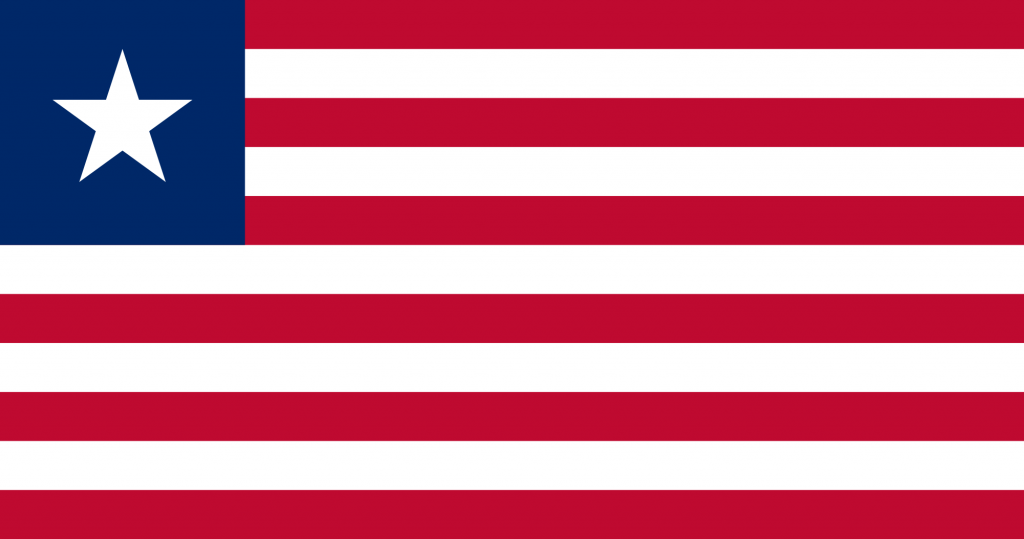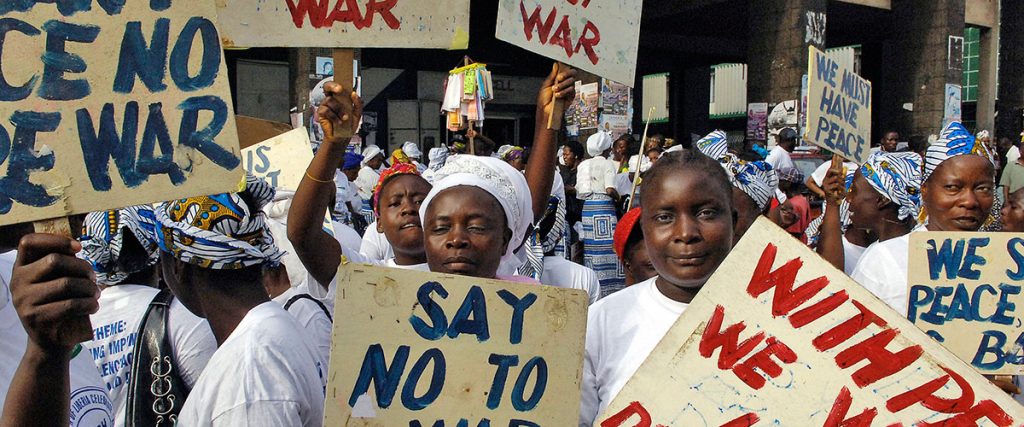
The mutilation of the genitals of a 22-year-old woman in Sinoe County has triggered anger among women’s rights advocates who have since begun calling for tougher judicial actions people who carry out dehumanizing acts of violence against women.
Patience Teah suffered an extreme act of violence at the hands of her fiancé, Joe Winnie, who reportedly poured caustic soda on the woman’s genitals and later sealed her with super glue.
The incident, which occurred on October 15, is said to have followed a quarrel over sex. The perpetrator, according to community members, got angry after the victim allegedly denied him sex on grounds that she was tired.
The victim told local reporters that she was asleep when her abuser entered the room with an object threatening to harm her. Alarmed and out of fear, she bowed to his threat while he carried out the inhumane act.
Enraged women lawyers, under the Association of Female Lawyers of Liberia (AFELL), have expressed disgust at the perpetrator for such a “barbaric act” and have called for his prosecution.
“The perpetrator should not be a free man at this time. He needs to be punished severely by the state. He is such a cruel being,” AFELL’s president, Atty. Vivian Neal, said while expressing disappointment over the level of violations against women and girls in the country. “The state needs to be tough against these kinds of people,” she said.
AFELL advocates for the promotion, protection, and advancement of the rights of women, children, and indigent persons.
The suspect admitted to the commission of the act during a preliminary police investigation. He has been incarcerated at the Sinoe Central Prison, pending court trial. Several civil society organizations in the county, including the National Institute for Public Opinion and the Southeastern Women Development Association, have condemned the act; vowing to pursue the case to its logical conclusion. Some want the trial transferred from that county.
Marian Deah, Executive Director of ‘Restore Their Hope’, a women’s empowerment group, described the act perpetrated by the 30-year-old man as cruel and devilish.
“This treatment meted against a woman he calls his fiancée is cruel, inhumane, devilish. Overall, it is the highest degree of human rights abuse,” Deah says.
She says in order to keep the perpetrators or would-be perpetrators in check, there is a need to firstly harmonize the customary and the statutory laws so that violators can receive the maximum punishment.
“This will put men in check to know that SGBV is a crime and not to be considered as traditional issues that need not be compromised in the community,” she said.
“Most of those SGBV cases are considered traditions in the community and are mostly compromised by community dwellers, which give perpetrators or would-be perpetrators an edge to always carry out inhumane treatment against females in our society.”
About 2,708 cases of violence against women were recorded in 2019, according to the Ministry of Gender, Children and Social Protection. But women’s rights campaigners say the true figure is likely higher as victims are often reluctant to report such crimes due to the stigma they carry. About 79 percent (2,141) of that total accounted for rape; gang rape and sodomy accounted while 567 (20%) for other forms of GBV; while 68 percent out of the rape cases were survivors below the age of 18 years which is far less than the 2020 statistic, the Ministry said.
Within just nine months of the past year, in which coronavirus hit the country, (between January- September 2020) 1,715 GBV cases were reported. Of the total, 1,388 or (80%) constitutes rape, gang rape, and sodomy. 151 (8.8%) accounted for other forms of GBV. At least 477 GBV cases were reported in the third quarter of 2020. Out of the total cases recorded in the third quarter of 2020, rape account for 312 or 65%, physical assault or domestic violence accounts for 11.9%, and sexual assault accounts for 7.4%.
“Though this year’s statistics are yet to be out, we are afraid that it will be higher,” says Atty. Mmonbeydo Nadine Joah, Executive Director/Legal Counsel at Organization for Women and Children (ORWOCH), an institution that helps women and children who are victims of violence. Almost every week we’re seeing cases of women and children being raped or killed,” Atty. Joah says.
The surge in SGBV cases, especially rape, provoked a mass protest in Monrovia last year. The protest, which organizers said was meant to prevail on the government to declare rape a national emergency, was triggered by the use of a razor blade, allegedly by a 19-year-old boy, to mutilate the genitals of a 3-year-old girl, which he reportedly thought would have given him easy access.
Dubbed “March for Justice”, the protests brought over 5,000 people, mostly youth, clad in total black into the streets as a sign of solidarity for victims and survivors of rape.
The mass civil action prompted President George Weah to declare rape a National Emergency and outlined plans to appoint a special prosecutor to handle rape cases, create a national sex offenders registry and earmark $2 million to address the problem.
Despite these actions and commitments, the act continues to persist. A 47-year-old man raped a 13-year-old girl in Grand Cape Mount County, while a 30-year-old man recently chopped his wife with a cutlass in Maryland County for allegedly denying him sex.
AFELL describes these, as acts of savagery against women and girls.
“We condemn in the strongest terms acts of violence against women, girls, and boys and call on the Ministry of Justice to do all within its power to bring the perpetrators of these evil deeds to justice as expeditiously as possible. These onslaughts, mostly against women and girls, must be stopped,” the group said in a statement last year.
The group said it was deeply troubled by persistent sexual and gender-based violence and attacks on women and girls amid the COVID-19 crisis.
“We expect everyone to be practising social distancing at such a time, but the huge surge in SGBV cases is undermining the fight against COVID-19,” the group said.
These rather troubling occurrences are taking place amidst increasing anti-rape and anti-gender-based violence campaigns across the country championed partly by the government, international partners, and civil society organizations. Some accused the justice system of not doing enough to protect women and condemned a culture of victim-blaming.
Rape is punishable by five to 10 years in prison or up to more than 20 years if it is committed against a minor. The law makes rape a non-bailable offense. Women’s rights campaigners like AFELL have said convictions are difficult to obtain and that poverty and a culture of shame often discourage victims from coming forward.
“It’s the societal factors that obstruct justice more than the legal mechanism–though the latter never even help anyways,” said Atty. Joah.
Meanwhile, the gender coordinator of Sinoe County, Julie Tetteh, is appealing for assistance as the condition of the 22-year-old Patience, who has been receiving medical attention at the JF Grant referral in the provincial capital, Greenville, is worsening by the day. She says the hospital lacks drugs and other basic materials.
“We want Patience transferred to Monrovia as soon as possible in order to enable her to seek better treatment,” Tetteh told newsmen last week.
This story was produced with support from Journalists for Human Rights (JHR), through the Mobilizing Media in the Fight Against COVID-19 in partnership with FrontPage Africa.

